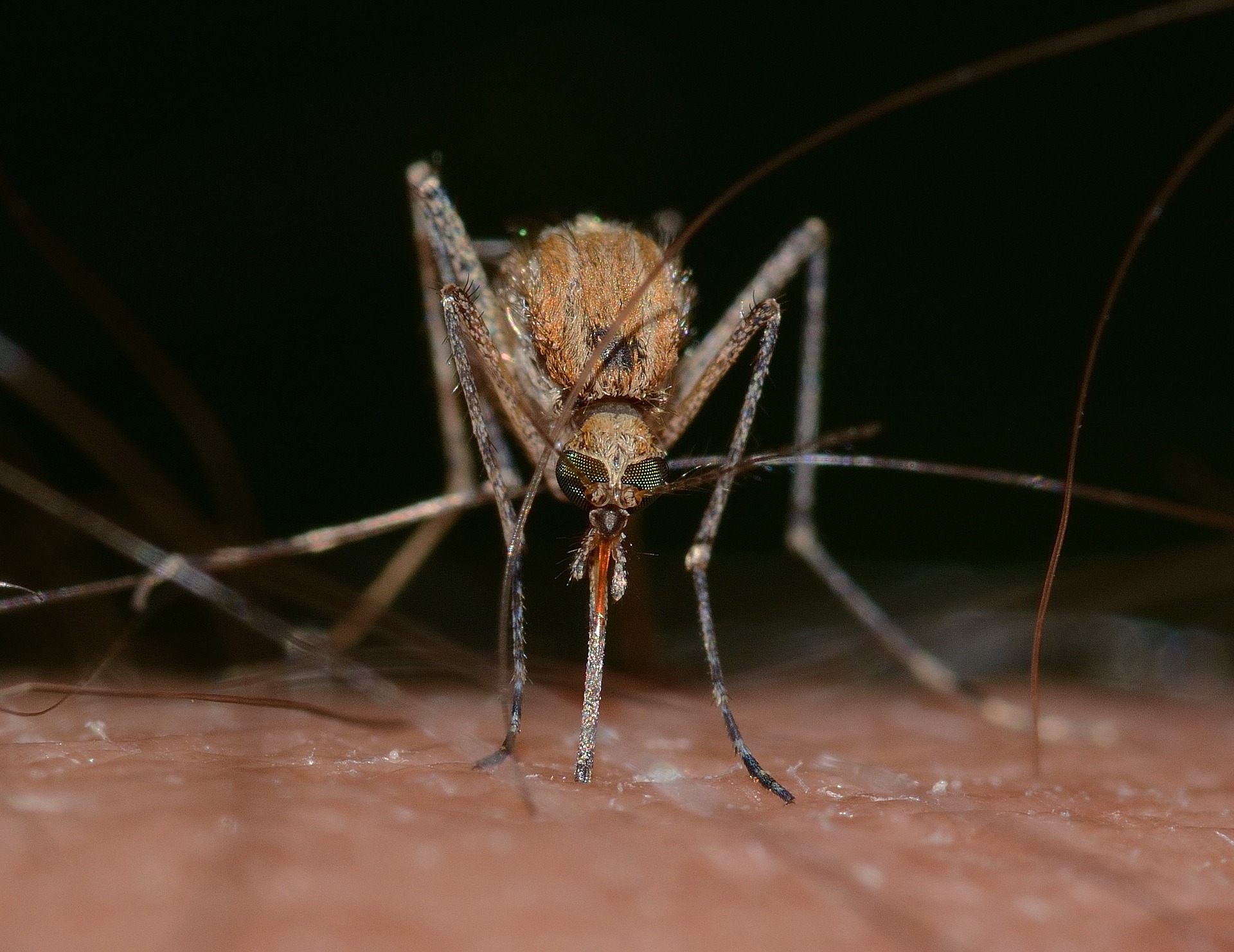
Summer is a great time for many people. People from countries around the world like to take vacations in the summer, and many children are out of school during this time of year. The sun shines bright, and the days are long.
However, summer harbors a dark secret: It’s bug season.
Bug Season
Why do all the bugs come out in summer?
Simple really: It’s warmer and wetter. The increase in temperature makes water evaporate faster, increasing the relative humidity. Additionally, warmer air increases the air’s ability to hold water, increasing the total amount of water in the air. This capacity makes 60% humidity feel very different at 50° Fahrenheit than 100° Fahrenheit.
And bugs love this. Insects and arthropods are cold-blooded. Their bodies don’t naturally create much heat. The warm weather makes bugs smarter and faster. If you’ve ever frozen your butt off in snow, you’ll understand why.
Additionally, bugs don’t breathe like we do. They don’t breathe through their mouths or noses, and they don’t have lungs. Instead, they breathe through their carapace. They have specialized structures in their exoskeleton called “spiracles” that let air into their bodies. This air passes through tubes that deliver oxygen to their tissues.
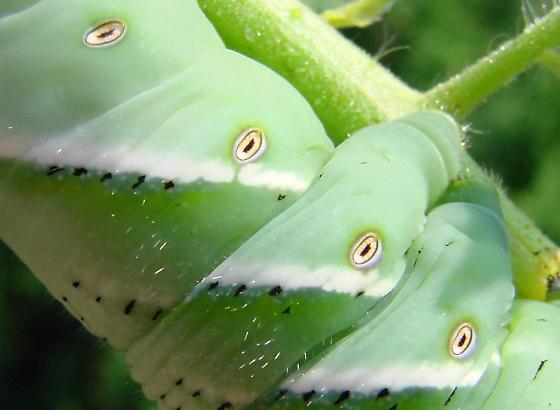
Spiracles on a worm
The combined high temperature and wet air make summer a great time for bugs. They can grow bigger, they can become smarter, and they can reproduce quickly.
What About Mosquitoes?
Summer is also a great time for mosquitoes. Many parts of the world see increased rainfall in the summer because of the increase in humidity. Puddles and lakes grow, and standing water abounds. Mosquitoes need standing water to reproduce -- they will only lay their eggs in relatively still water. This is why mosquitoes are extremely common in swamps and near lakes, but relatively rare in high deserts and mountains.
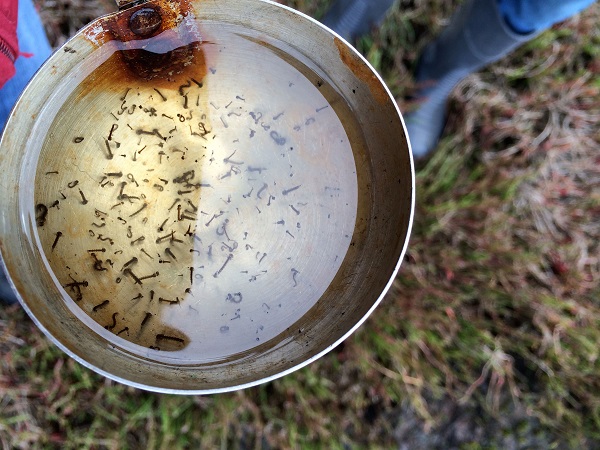
Just about any standing water will do for mosquito larvae.
We should also clarify that only female mosquitoes will bite people or animals. Male mosquitoes are not interested in other animals -- they’re mainly just looking for females to mate with. Females need your blood to produce the eggs they lay.
Ok, But How Do My Genes Come Into It?
Glad you asked, hypothetical reader!
Unlike many other parasitic insects, mosquitoes rely on smell to find their prey. Female mosquitoes first identify potential victims by smelling carbon dioxide. When they smell a change in carbon dioxide levels, they follow the carbon dioxide back to the animal that breathed it out.
Once they’re close enough, they smell the animal’s sweat. The mosquito tries to identify if that animal is an ideal target for them. If the animal is the wrong species, they generally won’t bite. Different species of mosquitoes prefer different animal’s blood. Additionally, mosquitoes prefer individuals with specific scents.
The scents that mosquitoes prefer are genetically determined. Studies conducted with identical twins demonstrate that mosquitoes do not prefer one of the twins over the other. But when you conduct the same test with fraternal twins, mosquitoes will often prefer to bite one sibling over the other.
A genome-wide association study (GWAS) found that mosquitoes prefer people with certain characteristics in their immune system genes. These genes regulate the major histocompatibility complex, or MHC, which plays an important role in your immune response. For whatever reason, mosquitoes seems to prefer people with certain variations in these genes.
Couples Day
Fun Fact: Many of the variations in your MHC also play a role in how attractive you are to other people. Both men and women prefer the smell of sweat from someone with different MHC genes. Some scientists think that this is supposed to help prevent inbreeding, because relatives will have similar MHC genes to you.
As a result, most couples tend to have different MHC genes. And guess what -- mosquitoes tend to prefer one person in the couple over the other person. In my case, my fiancée is extremely attractive to mosquitoes, and I am not. I rarely get bitten, except on the ankles.
Quite the Bite
Your genes don’t just play a role in how attractive you are to mosquitoes. They also determine how big the rash is after you get bitten.
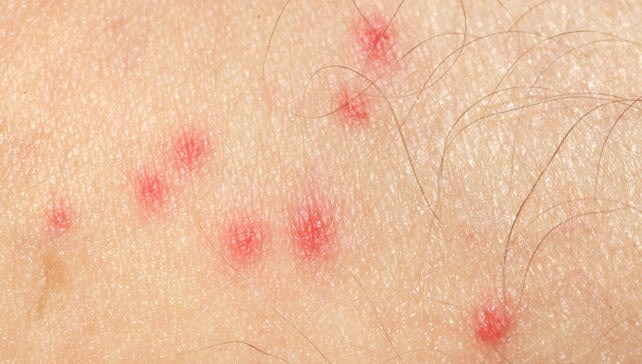
See, a few genes actually play a role in how your body responds to bug bites. While most people only get small bite marks, some people have genetic variants that result in larger bites. These large bites can be extremely uncomfortable.
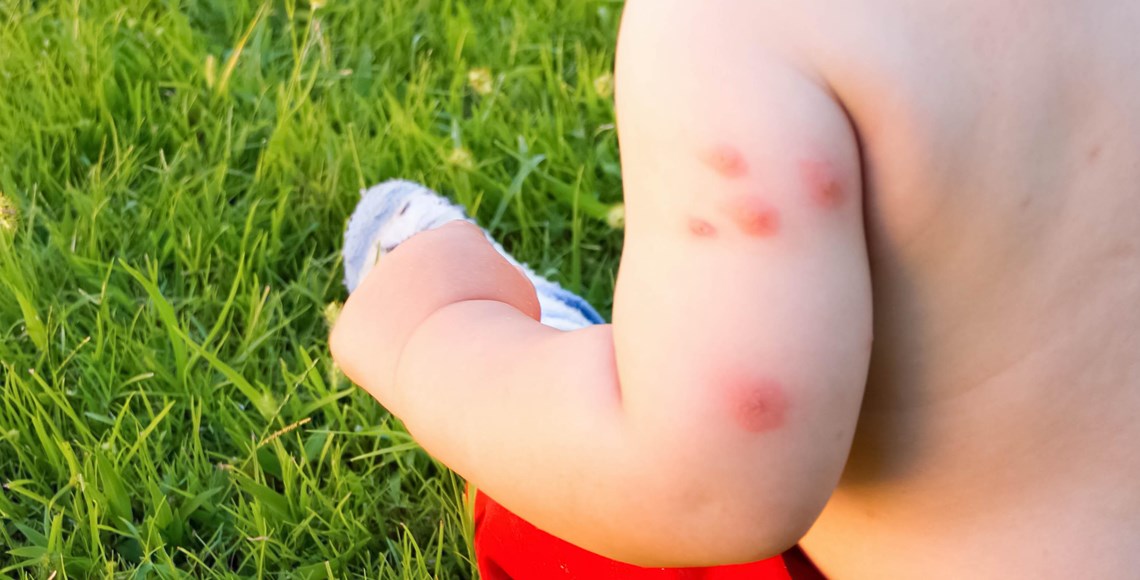
What to Do About Mosquitoes
So now you think that summer is awful because of mosquitoes. I’m sorry I ruined it for you. But you can actually do something about it.
As I mentioned before, mosquitoes rely on their sense of smell to find their victims. Some people are naturally more attractive to mosquitoes based on their scent. Some clever scientists have discovered that you can intentionally mess with mosquitoes’ sense of smell.
Bug spray, as it’s commonly known, contains chemical compounds that do exactly that. When mosquitoes smell these particular scents, they steer away. They want nothing to do with them. Bug sprays typically contain one or more of these active ingredients:
- Synthetics
- Diethyltoluamide, or DEET.
- Dimethyl Carbate
- Anthranilate-based
- Icaridin
- Metofluthrin
- Permethrin
- Organics
- Citronella Oil
- Lemongrass
- Neem Oil
- Tea Tree Oil
- Lemon Eucalyptus Oil
- Catnip Oil
- Tobacco (but we don’t recommend this)
These different compounds can all help you smell really bad to mosquitoes. But let’s say you’ve already been bitten. What do you do now?
Well, if you’ve had an allergic reaction, you should go immediately to the hospital. Seriously.
But barring an allergic reaction, you may have itching or discomfort where the mosquito bit you. There are some topical treatments that should help. Anything that soothes your skin should work, including aloe vera, hydrocortisone, or calamine lotion.
Genetically Modified Mosquitoes
One other thing worth mentioning -- scientists are working on genetically modified mosquitoes. They’re creating a literal superbug. Be warned, they are out to get you!
Just kidding. About them being out to get you. They are creating a superbug, but it’s intended to help humans.
The way these “super” mosquitoes will help us is by controlling mosquito populations. These modified mosquitoes are exclusively male. Since male mosquitoes don’t bite humans, they aren’t a problem. These males have been given special genes that are lethal to female mosquitoes, but harmless to male mosquitoes. As a result, any offspring between these modified males and a female mosquito will only result in male children. The male children will hopefully pass this gene onto their offspring too. The immediate effect will be a reduction in the number of bites. The end result is that fewer female mosquitoes will be born, and the species will dwindle.
Tests in laboratories have been positive so far, and many companies hope to unleash these modified mosquitoes on specific populations that carry diseases.
Final Thoughts
So that was a long research article about bugs! Now you know the role that your genes play when it comes to mosquitoes. You even know about genetically modified mosquitoes. So do they terrify you or delight you? Let us know in the comments below.
References:
- https://sciencing.com/water-vapor-pressure-vs-humidity-19402.html
- https://www.sciencedirect.com/topics/veterinary-science-and-veterinary-medicine/spiracle
- https://www.futurity.org/mosquitoes-senses-961632/
- https://www.caltech.edu/about/news/mosquitoes-use-smell-see-their-hosts-47338
- https://www.terminix.com/pest-control/mosquitoes/facts/male-vs-female/
- https://www.ncbi.nlm.nih.gov/pmc/articles/PMC5390679/
- https://www.ncbi.nlm.nih.gov/pubmed/10962477
- https://phys.org/news/2015-04-twins-reveals-genetic-link-mosquito.html
- https://www.ncbi.nlm.nih.gov/pmc/articles/PMC2519788/
- https://www.medicalnewstoday.com/articles/325405.php
- https://en.wikipedia.org/wiki/DEET
- https://en.wikipedia.org/wiki/Insect_repellent
- https://medicalxpress.com/news/2018-08-genetically-mosquitoes-weapon-curbing-disease.html



